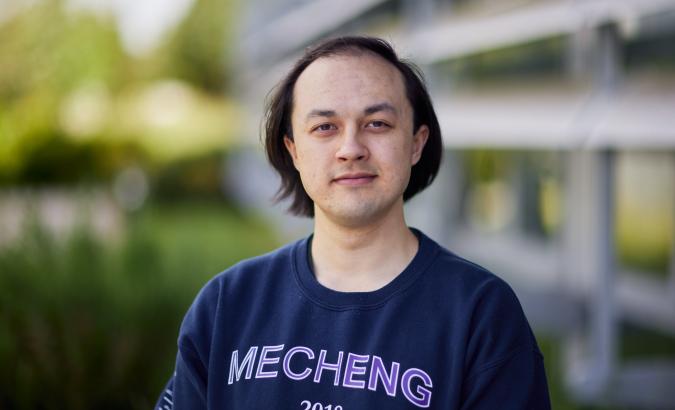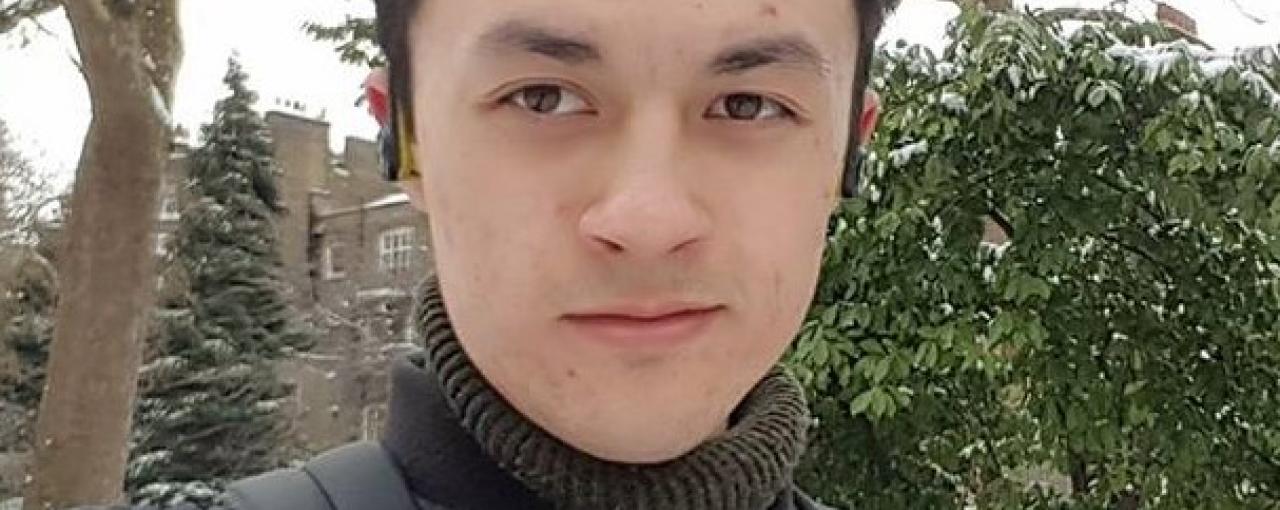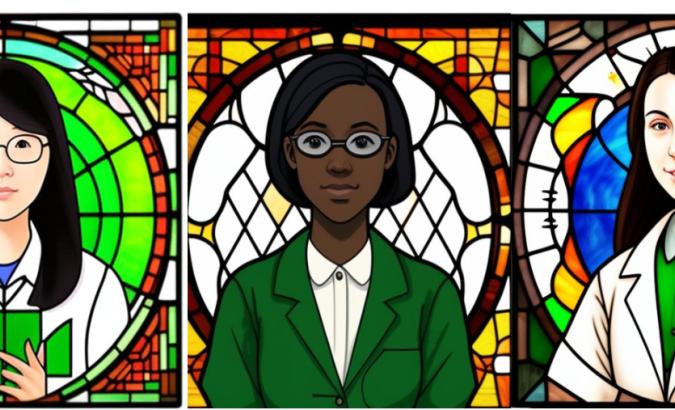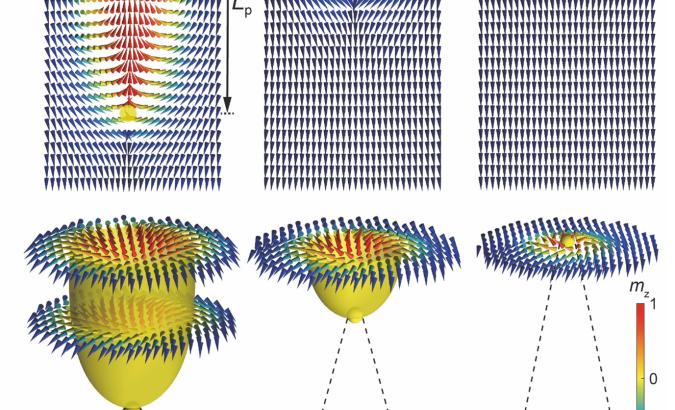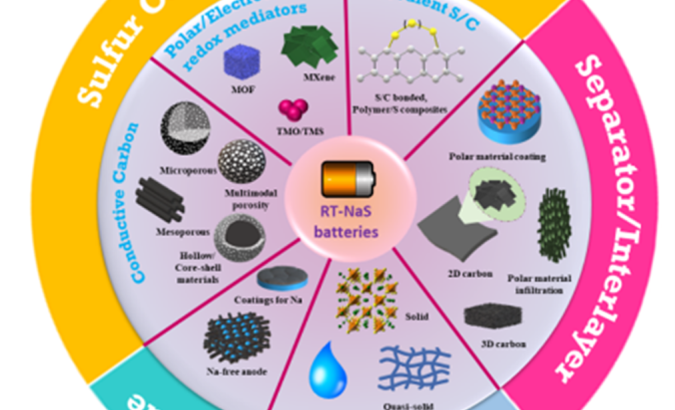EPSRC's Industrial Cooperative Awards in Science & Technology (CASE) provide funding for doctoral studentships where businesses and related organisations take the lead in arranging projects with an academic partner of their choice.
The aim of these awards is to provide doctoral students with a first-rate, challenging research training experience, within the context of a mutually beneficial research collaboration between academic and partner organisations, for example industry or policy making bodies.
Research Complex at Harwell hosts a number of CASE students to provide a busy, interactive environment with state-of-the-art facilities, in which to gain essential training alongside their studies.
David Tien Rees is a PhD CASE student from UCL who works with Professor Peter Lee's group in Materials Design and Manufacturing on a placement of five years, which began in 2019. Alison Oliver, Communications and Engagement Officer, talks to David about his experience so far.
What introduced you to Research Complex?
I started at the Research Complex at Harwell after applying for a position of a summer placement and PhD of 3 years, which started in 2019 after my undergraduate degree in mechanical engineering at UCL. Materials science had been my favourite part of my undergraduate degree and I started applying for jobs here at Harwell as it looked an exciting place to be.
What introduced to you to mechanical engineering as a discipline?
I have been interested in mechanical engineering since before my GCSEs and I chose UCL as it is has a great multidisciplinary environment. Research Complex advertised for a PhD, which involved working closely with beamline scientists at Diamond Light Source. I liked the idea of working with such great access to the synchrotron and having continual contact with other key workers.
My first experience with additive manufacturing was with a desktop kit for polymer printing, which I used as part of my dissertation project. I found this way of fabrication new and innovative but I didn’t yet appreciate how important the materials science was in expanding the versatility and applicability of the process. Now that I’m involved at the forefront of this development for my PhD, I want to figure out the underlying scientific challenges and enable others to use this revolutionary technology.
What do you enjoy most about working at Research Complex?
All the shared facilities mean working here is so useful with ease of access. The first time when I got to use the SEM was a definite highlight as I had never used it at UCL.
Research Complex's quiet location here in the countryside with accessible bus links is another plus. Whilst UCL is great for socializing after lectures as you’re in the middle of London, here at Research Complex, I find it much easier to relax and focus with office space available and then the lab to work in. The core team here are fantastic with their “how can we help” attitude. Shout outs to Andy, Alec, Michael and Abraham in particular, as it’s great to have their support, whereas at UCL, you have hundreds of students trying to achieve similar support with only so many labs available.
I have really noticed how streamlined everything is here at Research Complex, in comparison to other sites with access to synchrotrons where you have to hit the ground running. Here you can work on your research at your own pace and test at the shared facilities when you are ready. Here members of your team can prepare months in advance, rather than showing up on the day and hoping it goes well and not having the space to prep. At Research Complex, I can’t help but notice how smoothly collaborations and research happen.
Your placement with us is for five years from 2019-2023. What has been valuable about your experience here with us so far?
I am really enjoying working with Peter and learning from him. He is very hands on about networking and collaboration. Our colleagues in industry have been with us since day one and it has been so much easier to invite them into a lab and show them what we’re doing, maintaining that great level of interaction and bringing them in during various stages of the project.
I have really noticed how streamlined everything is here at Research Complex, in comparison to other sites with access to synchrotrons where you have to hit the ground running. Here you can work on your research at your own pace and test at the shared facilities when you are ready. Here members of your team can prepare months in advance, rather than showing up on the day and hoping it goes well and not having the space to prep. At Research Complex, I can’t help but notice how smoothly collaborations and research happen.
Could you please tell us about some of the projects you are working on?
I am currently working on two projects. One is a mentoring scheme with Arkwright Engineering. When I started my PhD, I reached out to the foundation and advised that it would be great to include more work experience, so for example, we could mentor an aspiring engineer during their A level studies and offer lots of experience with 3D printing, modelling, design and produce.
The second project I am working on is with the Embassy of Japan here in the UK. I’ve had interactions before with them during my A level studies. In February 2020, I went there for an awards ceremony and afterwards it was great to meet more people at the pub and chat about what each of us was working on. I described using the 3D printer here at Research Complex and this caught the attention of a person who was working on an exhibition to coincide with the Paralympics. He wondered if 3D printing could be used to make Japanese art more interactive to people who are visually impaired. This has been such a fun project to work on, as it includes so many materials like metal and ceramics and being able to work towards opening art up to a new audience and inspiring creativity. I can confidently say I would not have been able to assist the Embassy of Japan without the skills I have learnt at Research Complex. Peter is as excited about the project as I am and it showcases our group’s greater capabilities.
A third project is with Rolls Royce, whose collaboration with Peter, was included in the job description at Research Complex when I originally applied. This definitely contributed towards my decision to apply as it sounded like such an exciting opportunity to be able to work on my favourite subjects since school age - aerospace and materials science - and the chance to work with Rolls Royce, whose site in Derby I have since visited.
I was able to see how research is integrated in the set-up of all projects at Rolls Royce and what is useful to them, helping to streamline the projects to their needs. I was also able to see their warehouse where faulty engines are sent back for repair and witness firsthand how additive manufacturing adds value. At this warehouse, there were huge engines with millions of components. In lectures I understood about turbine blades pushing air through but once I was there, I could understand from my colleagues why they were trying to upgrade from lots of blades to the one disc. There are points in between blades that allow for inefficiency and if just one blade breaks, the whole disc is compromised. We are working with Rolls Royce on the challenges that repairing can bring and finding what we can do to help.
Image: © David Tien Rees


